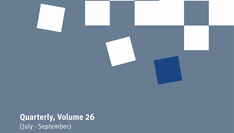Abstract
The purpose of this study examined online shopping behavior in Surabaya by using a technological philosophical point of view. The research contributes on critical thinking about human life in the era of technology, especially in online shopping. Methodology: This research approach was qualitative, with the phenomenological method from Martin Heidegger. Research informants were obtained using a key person who already knew the living conditions around the analyzed location. The data collection method used systematic interviews. Findings: The results show that the nature of online shopping behavior is a form of framing shopping as it is. Moreover, the result of this study are expected to contribute critical thinking related to human life in the world of technology.
References
Baudrillard, J. (2002). The System of Object. London: Verso.
Borgman, A. (2005). Technology (H. Dreyfus, M. Wrathal, eds.). Victoria: Blackwell Publishing Ltd.
Bungin, B. (2008). Penelitian Kualitatif: Komunikasi, Ekonomi, Kebijakan Publik, Dan Ilmu Sosial Lainnya. Jakarta: Kencana Predana Media Group.
Edward, A. E. (1993). Development of a New Scale for Measuring Compulsive Buying Behaviour. "Journal Financial Councelling and Planning", 4(1).
Engel, F. J. (1994). Consumer Behavior. Illinois: Dryden Press.
Heidegger, M. (1966). Discourse on thinking (J. M. Anderso, E. H. Freund, eds.). New York: Harper & Row Publishers.
Heidegger, M. (1972). Being and Time (Joan Stamboagh, ed.). London: Harper & Row Publishers.
Heidegger, M. (1975). The Basics Problems Of Phenomenology (A. Hofstadter, ed.). Indiana University Press.
Heidegger, M. (1977). The Question Concerning Technology And Other Essays (W. Lovitt, ed.). New York: Harper & Row Publishers.
Heidegger, M. (1985). History of the Concept of Time Prolegomena (T. Kisiel, ed.). Indiana: University Press.
Heidegger, M. (1994). Basic Question Of Philosophy: Selected “Problems” of Logic (R. Rojcewicz, A. Schuwer, ed.). Indiana: Indiana University Press.
Heidegger, M. (1999). Contributions to Philosophy (From Enowning) (P. Emad, K. Maly, eds.). Indiana University Press.
Heidegger, M. (2001). Phenomenological Interpretations of Aristotle (R. Rojcewicz, ed.). Indiana: University Press.
Heidegger, M. (2003). Philosophical and Political Writing (Manfred Stassen, ed.). London: Continuum International Publishing Group.
Heidegger, M. (2005). Sojourns: The Journey to Greece (Suny Series in Contemporary Continental Philosophy). State University Of New York Press.
Heidegger, M. (2008). Toward The Definition of Philosophy. New York: Continuum International Publishing Group.
Heidegger, M., Krell, D. F. (1987). Nietzsche. Vols. 3 and 4 (Vol. 3: The Will to Power as Knowledge and as Metaphysics; Vol. 4: Nihilism). New York: Harper & Row Publishers.
Kaelan (2005). Metode Penelitian Kualitatif Bidang Filsafat. Yogyakarta: Paradigma.
Ritzer, G. (2006). Mengkonsumsi Kehampaan Di Era Globalisasi (Lucinda M. Lett, ed.). Yogyakarta: Penerbitan Universitas Atma Jaya.
Sang Hee, S., Yun Jung, C. (2014). Phases of Shopping Addiction Evidenced by Experiences of Compulsive Buyers. "Internation Journal Mental Health Addiction", 12(3).
Soedjatmiko, H. (2008). Saya Bebelanja Maka Saya Ada: Ketika Konsumsi dan Desain menjadi Gaya Hidup Konsumeris. Yogyakarta: Jalasutra.
Steinberg, M. (2017). Media Mix Mobilization: Social Mobilization and Yo-Kai Watch. "Animation", 12(3). DOI: 10.1177/1746847717739565.
Sugiyono (2016). Metode Penelitian dan Pengembangan (Research and Development/R&D) [In:] Bandung: Alfabeta. DOI: 10.1016/j.drudis.2010.11.005.
Toffler, A. (1971). Future shock [In:] Science Education. New York: Bantam Books Inc. DOI: 10.1002/sce.3730560328.
Zimmerman, M. E. (1990). Heidegger’s confrontation with modernity. Indiana University Press.
All texts published in the journal Modern Management Review are available in the full version on the website of MMR. Digital IDs have also been entered from number 19 (3/2012) (DOI: 10.7862/rz.2018.mmr.1)
Open Access – CC BY 4.0
This is an open access journal which means that all content is freely available without charge to the user or his/her institution. The articles are published under the terms of the Creative Commons licence (CC-BY 4.0), including the following fields of exploitation comprising:
1) the right to publish the Work in print in book and digital form and to distribute it in book and digital form, including by displaying, playing, broadcasting, making it publicly available by the Publisher and third parties,
2) the right to record and reproduce all or part of the Work on paper and in the form of a digital record and in any other possible way by the Publisher,
3) the right to enter the Work into computer memory and save the Work in the IT systems of the Publisher and other entities distributing digital content,
4) the right to archive the Work and make copies of the Work on electronic media by the Publisher, without quantitative restrictions,
5) the right to digitise the Work and to perform conversions/transformations of the Work in electronic form into other digital formats by the Publisher and third parties,
6) the right to distribute the Work, including via the Internet or other ICT networks by the Publisher and other third parties, in a way that allows viewing, reading, copying the content of the Work in electronic form, i.e. all elements belonging to it, whereby copying shall be understood as the saving of the Work made available to an interested person on a medium of their choice,
7) the right to store the Work in the database of the Publisher and other entities distributing the Work in any form, as well as its processing in the database of the Publisher and third parties,
8) right to translate and publish the Work in one of the modern languages in any form by the Publisher and third parties.


